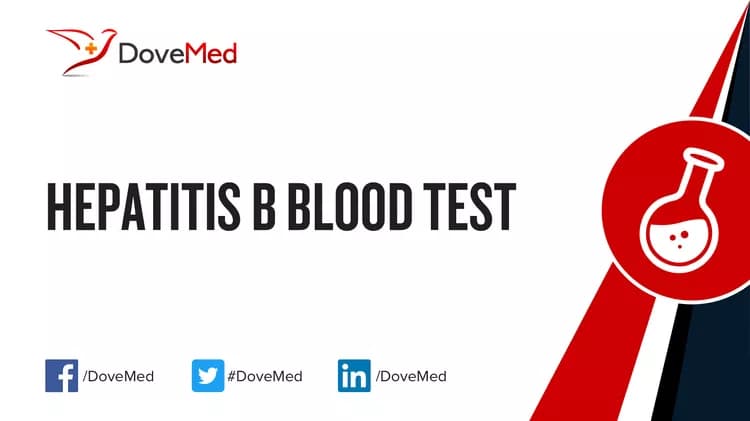What are the other Names for this Test? (Equivalent Terms)
- HBV Blood Test
- Hepatitis B Core Antibody (Anti-HBc IgM and Total Anti-HBc) Blood Test
- Hepatitis B Surface Antigen (HBsAg) Blood Test
What is Hepatitis B Blood Test? (Background Information)
- The hepatitis B virus (HBV) infects the liver, causing damage and inflammation (hepatitis). It is transmitted through body fluids:
- Through shared needles
- Sexual contact
- Blood transfusion
- From mother to child during or after birth
- The hepatitis B virus, besides causing acute hepatitis, is capable of causing chronic infection that can also lead on to cirrhosis (scarring of liver), or liver cancer
- Testing for the virus involves estimating antibodies produced by the immune system against it and for the presence of viral proteins in blood. Tests to detect viral DNA are also available
- This aids in diagnosing infections and in determining, if the infection is in an acute or chronic stage. It also helps to know the immunity status, post vaccination
The components that are tested in a Hepatitis B Blood Test include:
- Hepatitis B surface antigen (HBsAg) - This protein, found on the surface of HBV, is present in acute and chronic infections and disappears during recovery
- Hepatitis B e-antigen (HBeAg) - This protein is found in the blood, only when the HBV virus is actively multiplying. Hence, presence of this protein indicates that the individual is infectious to others. It also helps during treatment monitoring; if HBeAg becomes negative post treatment, the therapy maybe discontinued after a while
- Anti-hepatitis B core antibody (anti-HBc), IgM - This is the earliest antibody produced post exposure to HBV virus and it indicates an acute infection
- Anti-hepatitis B core antibody (anti-HBc), Total - This estimates both IgM and IgG antibodies and helps to diagnose, both acute and chronic infections, as well as a past exposure to HBV
- Hepatitis B surface antibody (anti-HBs) - This is the antibody that is produced in response to the surface antigen. Presence of the surface antibody indicates recovery from a hepatitis B infection or vaccination against hepatitis B
- Anti-hepatitis B e-antibody (Anti-HBe) - This is the antibody produced in response to the e-antigen and is present in blood of those recovering from acute infections, as well those who are chronically infected, but less likely to have liver damage
- Hepatitis B viral DNA - This measures the viral load in the blood. Higher the viral load, greater is the risk of liver damage, and greater is the risk of transmitting the infection to others
What are the Clinical Indications for performing the Hepatitis B Blood Test?
A physician may order Hepatitis B Blood Tests in individuals presenting with signs and symptoms suggestive of hepatitis, such as:
- Abdominal pain
- Fever
- Nausea, vomiting
- Jaundice
- Dark urine
- Pale stools
Certain other indications for testing include:
- Asymptomatic or mildly symptomatic individuals with abnormal liver panel (test) parameters
- Screening of high-risk individuals:
- Individuals, who may pass on infection through cuts, needle stick injuries, etc. to healthcare workers
- Individuals, born in areas where hepatitis B is very prevalent
- HIV-infected individuals and those in close contact with such individuals
- Pregnant women
- Men having sex with men
- Individuals with elevated liver enzymes, but no apparent cause
- Immuno-compromised individuals
- Screening of donated blood, before a transfusion is made
- The hepatitis B virus parameters are tested, every 6-months to 1-year, for monitoring chronically infected individuals
How is the Specimen Collected for Hepatitis B Blood Test?
Sample required: Blood
Process: Blood sample is obtained through a needle inserted into a vein in the arm.
Preparation required: None
What is the Significance of the Hepatitis B Blood Test Result?
The Hepatitis B Blood Test may have the following outcomes, at different stages of infection:
- Early acute infection: Positive HBsAg (surface antigen) and HBeAg (e-antigen); no antibodies are detected
- Acute infection, infectious stage - Positive HBsAg and HBeAg; may test positive for anti-HBc IgM (Hep B core antibody)
- Late acute infection/seroconversion stage: Positive HBsAg and negative HBeAg; positive for Hep B core antibody and Hep B e-antibody
- Convalescent stage, when the infection is getting resolved: Negative for both surface and e-antigens; antibodies to both, core and e-antigen, are detected
- Infection completely resolved with natural immunity against HBV: Negative for antigens; positive for antibodies to surface, core, and e-antigens
- Chronic infection, with low risk of liver damage (carrier state): Positive for HBsAg; negative for HBeAg; positive for total Hep B core antibody and Hep B e-antibody
- Chronic, active infection: Positive for HBsAg and HBeAg; positive for total Hep B core antibody, negative for Hep e-antibody
- Immunity due to vaccination: Positive for Hep B surface antibody and negative for Hep B core antibody; negative for surface antigen
The laboratory test results are NOT to be interpreted as results of a "stand-alone" test. The test results have to be interpreted after correlating with suitable clinical findings and additional supplemental tests/information. Your healthcare providers will explain the meaning of your tests results, based on the overall clinical scenario.
Additional and Relevant Useful Information:
- Some types of hepatitis B virus found in the Middle East and Asia, do not produce e-antigen. In such strains, the e-antigen testing is not very useful
Certain medications that you may be currently taking may influence the outcome of the test. Hence, it is important to inform your healthcare provider, the complete list of medications (including any herbal supplements) you are currently taking. This will help the healthcare provider interpret your test results more accurately and avoid unnecessary chances of a misdiagnosis.
Related Articles
Test Your Knowledge
Asked by users
Related Centers
Related Specialties
Related Physicians
Related Procedures
Related Resources
Join DoveHubs
and connect with fellow professionals


0 Comments
Please log in to post a comment.